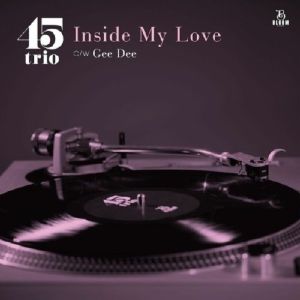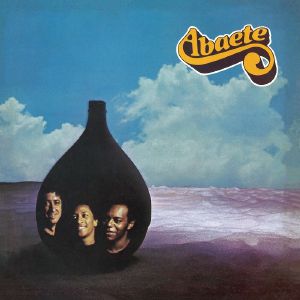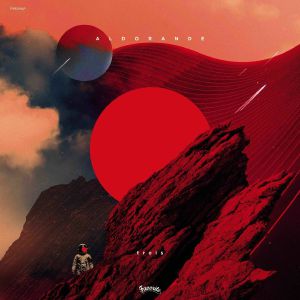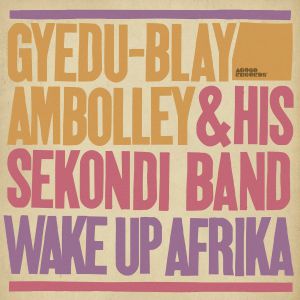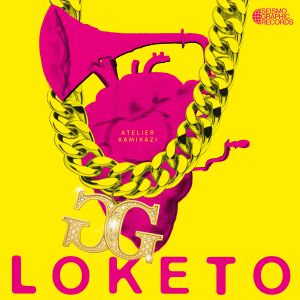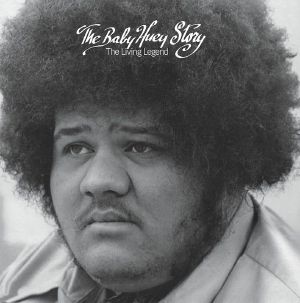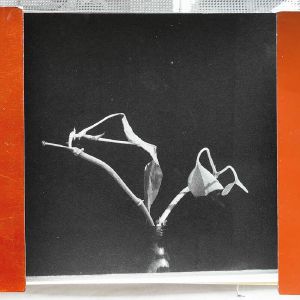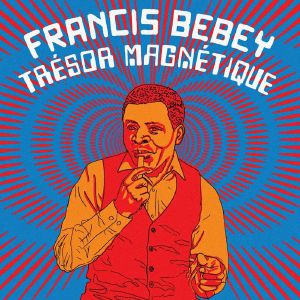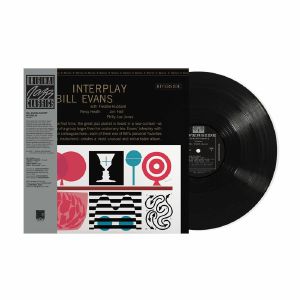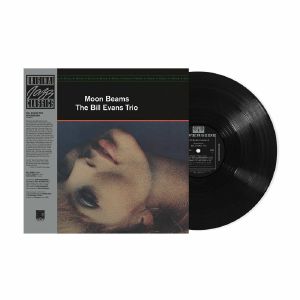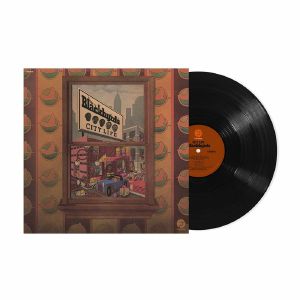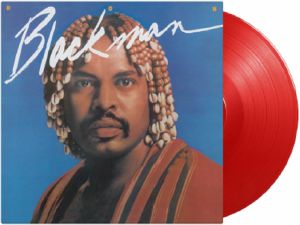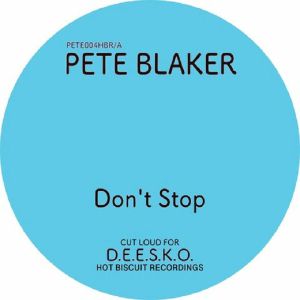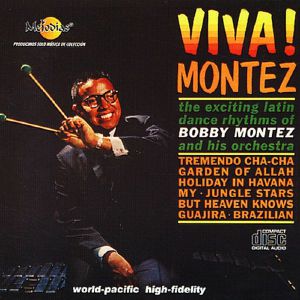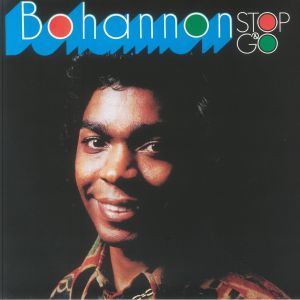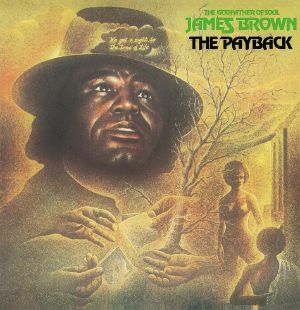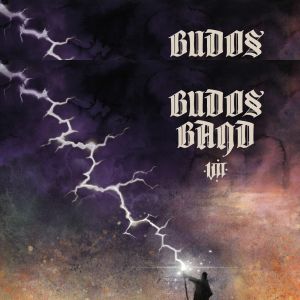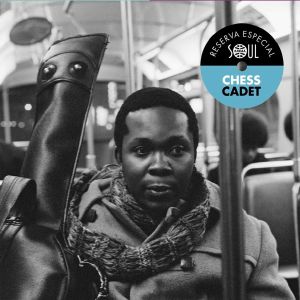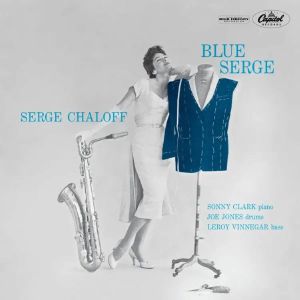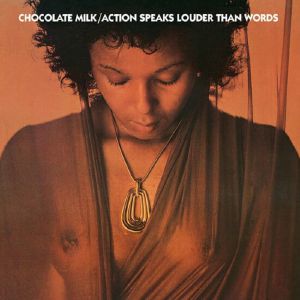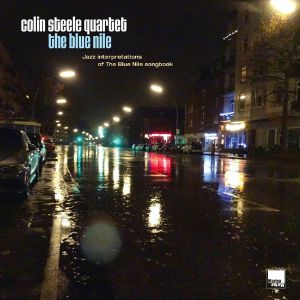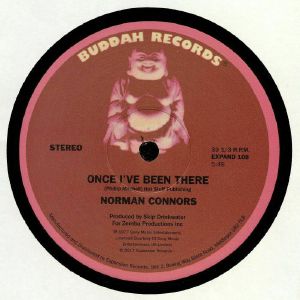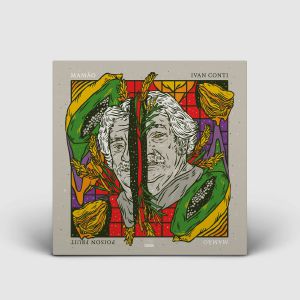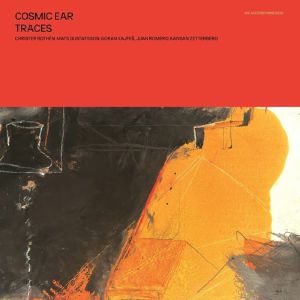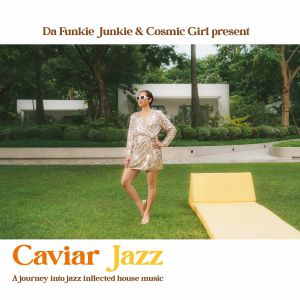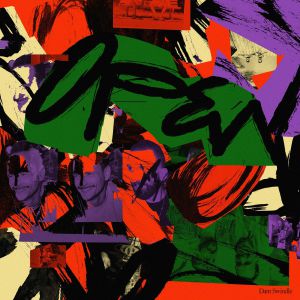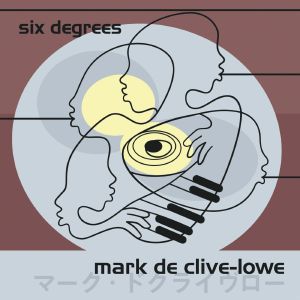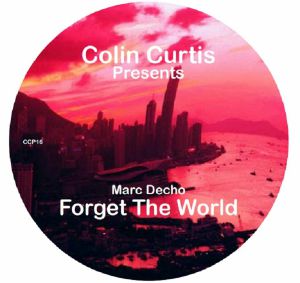New releases last four weeks: Funk Soul & Jazz
Funk Soul & Jazz vinyl released in the last four weeksReview: For Record Store Day 2025, Bloom Japan presents a lovely 7" from the 45TRIO, who reimagine Minnie Riperton's classic 'Inside My Love.' This reinterpretation delivers a lush, jazz-infused instrumental take that honours the original's unique sensuality while introducing a fresh, soulful groove for modern 'floors. 45TRIO's tasteful blend of live instrumentation and vintage tones helps breathe new life into this timeless gem while the B-side offers a stripped-down version perfect for late-night spins or sample hunters. This is one to pick up and drop during those loved-up moments.
… Read more in stock $20.19
Review: Abaete's self-titled 1977 LP remains one of Brazil's deepest cult treasuresian obscure gem of Bahian jazz-funk samba that now sees long-overdue reissue. Recorded during a creative high for Bahia's music scene, this sole full-length from the vocal trio blends masterfully layered harmonies with moody synths, groove-driven percussion and North Brazilian rhythmic signatures. There's almost no background info on the group, but the music speaks volumes. Highlights like 'O Rei Do Calang (Calangotango)' and 'Toca Nicanor' ripple with syncopated urgency, while 'Canto Sul' and 'Por Uma Razo De Amor' float with breezy melodic finesse. Mixed by Waldir Lombardo Pinheiroiknown for work with Tom Ze and Zeca do Tromboneithe album is full of freewheeling arrangements, grainy funk textures and subtle psychedelia. It's no surprise the trio also penned tunes for greats like Clara Nunes and Elza Soares. A rare window into an experimental chapter of Brazilian popular music, rediscovered in all its radiant groove.
… Read more in stock $36.75
Review: Fusion five-piece Aldorande are no fustians when it comes to full-length LPs. These self-styled groove adventurers remain radically open to the sound, thanks to their stylistic touchstone, 70s funk, and its diachronic conduction of future styles. Recorded on tape in a top Parisian studio, their third record Trois brims with trifect textures, bold phrasing, and soaring choral waves. Mathieu Edouard's precise drumming is glued to the spot by Erwan Loeffel's plaited percussion, all the while Laurent Guillet's fingertips and Florian Pellissier's splayed hands make the best uses of Fender Rhodes, axe and Minimoog.
… Read moreGespielt von: Roberta
in stock $29.74
Review: From Sekondi-Takoradi, Ghana, Gyedu-Blay Ambolley returns with another simmering display of his self-styled Simigwa-funk-part highlife, part jazz, part proto-rap, all unmistakably his own. Still sharp at 77, Ambolley commands a tight ensemble through groove-led declarations like 'Wake Up Afrika' and 'U Like Or U No Like', riding swung basslines and crisp horn arrangements with the flair of a master bandleader. 'God E See You' finds him slipping into a smoky, Afro-soul register, while 'New Simi Rapp' stretches out into hypnotic territory, led by flutes, baritone sax and rhythmic mantras. 'Ochoko Bila' and 'If You Want To Know' are more playful cuts, full of bounce and quick-fire wisdom. The production, split between Ghana and the Netherlands, balances live grit with rich detail-everything breathes, nothing is wasted. As ever, Ambolley's voice is both storyteller and instrument: loose, commanding, and deeply rooted in diasporic sound. This is music that moves and means.
… Read moreGespielt von: AfroBase (Radio Chart)
in stock $24.42
Review: On Club Tounsi, Tunisian producer Sofyann Ben Youssef, aka AMMAR 808, brings the raw rhythmic power of Mezoued-the folk music of Tunisia's working class-into a bold electronic future. Fusing pulsating synths, distorted textures and TR-808 beats with traditional instruments like goatskin bagpipes, hand drums, and the ney, he reimagines iconic Mezoued tunes for a new generation. Vocalists from classical, Sufi and Mezoued backgrounds also feature to add human soul and mean the album captures the genre's emotional depth while transforming it into something cinematic and club-ready. This LP is a bridge between past and future, tradition and innovation and one that makes you want to move.
… Read moreGespielt von: Ex-Friendly (Truth & Lies Music)
in stock $23.29
Cat: FAR 063. Rel: 16 Jun 25
Review: The UK's Robin Lee is one of the members of much-loved disco gang Faze Action but also he's behind Andromeda Orchestra who return here with an album that offers a cosmic fusion of jazz-funk and disco. It's been put together with Moogs, clarinets, Rhodes and rich analogue textures that make for a mix of nostalgia and sonic richness that sinks you in deep. Blending nostalgia with innovation, Lee creates deep, immersive soundscapes. There are widescreen odysseys like 'Mythical', loved-up bunkers such as 'Thinking About Your Love' and a rare Nick The Record remix of 'Get Up & Dance' that overflows with cosmic melodies and lush, life-affirming strings.
… Read moreGespielt von: Mukatsuku Records Chart, Faze Action
in stock $31.42
All The Quiet (Part II) (2xLP + MP3 download code)
Cat: AQU 012LP. Rel: 12 Jun 25
Review: The multi-talented Joe Armon-Jones is back in the game with his most ambitious and self-defined solo work yet. All The Quiet (Part II) is a colourful collision of jazz, funk, dub, hip-hop and soul that was entirely written, produced and mixed by the man himself. His work as part of Mercury Prize-winning Ezra Collective is what established Armon-Jones, but his evolution as a solo artist on his own label, Aquarii Records, has been just as essential. This follow-up to 2019's Turn To Clear View features collaborators like Greentea Peng, Yazmin Lacey, Hak Baker and Nubya Garcia and is a deeply personal sound that veers from expansive and cosmic to more intimate and tender.
… Read more in stock $38.15
All The Quiet Part II (translucent blue vinyl 2xLP + booklet)
Cat: AQU 012LPC. Rel: 12 Jun 25
Review: Thrumming with conceptual aplomb, jazz mastermind and Ezra Collective co-founder Joe Armon-Jones's new album All The Quiet is finally revealed to us. Residua of jazz, funk, dub, hip hop and soul abound on the second chapter of a two-part Aquarii Records release, which Jones founded. With guest features from the likes of Greentea Peng, Yazmin Lacey, Hak Baker and Oscar Jerome, the record complements Jones and Aquarii's stated mission to blend genres and cross stylistic streams, from atmospheric electronica to dub, while building and subverting tropes of apocalypse, prophecy and redemption.
… Read more in stock $39.57
Review: On their second release, Atelier Kamikazi continues to deliver raw, collaborative lyrics drawn from their experiences as street kids in Kinshasa, the capital of the Democratic Republic of the Congo. Like their debut on Seismographic Records, the group reflects on the harsh realities and surreal beauty of life in the city as they resist corrupt politics, challenge religious hypocrisy embodied by a figure they call "Priest Cat's Heart", and confront the dangers of "Bomb," a potent street drug. With vivid metaphors and unflinching honesty, they warn against its use while affirming their true tools for survival: words, wisdom and Loketo-the liberating hip-swing of Congolese dance.
… Read more in stock $30.29
Persona 5: Megamix (Soundtrack) (red vinyl LP)
Cat: 8BIT 82312. Rel: 20 May 25
Review: The Persona 5 Megamix Vinyl Soundtrack distils the essence of the game's legendary audio into one electrifying album. It's a curated selection that pulls from hours of jazzy, stylish and emotionally charged music that defines the whole mood and aesthetic of the game. From iconic bangers like 'Wake Up, Get Up, Get Out There' and 'Last Surprise' to atmospheric gems like 'Beneath the Mask' and 'Rivers in the Desert,' these tracks brim with hooky musical character and also plenty of narrative weight. With remixed album art by Drew Wise, this is a sleek, essential tribute to one of gaming's most unforgettable soundtracks.
… Read moreout of stock $46.30
Persona 4: Megamix (Soundtrack) (yellow vinyl LP)
Cat: 8BIT 82302. Rel: 20 May 25
Review: Part of the wider Megami Tensei video game franchise, Persona 4 is a 2008 role playing title that hit Japan, and made a huge impact, in 2008. Set in a fictional version of the Land of the Rising Sun's countryside, players adopt the character of a high school student who moves to the small town of Inaba from the city to experience rural living for 12 months. Mysterious murders ensue, and it's up to you - or whoever's got the PS2 controller - to work out what's happening. It's typically deep dive stuff for a country that has always had a very unique relationship with video games. Atlus, the developer, already had a reputation for making beloved scores for its titles, and this one is no exception, although broke the mould compared with preceding instalments in the saga. Way more upbeat, it's a mixture of bubblegum dance pop, chip music, high intensity synth rock, urban-hued J-pop, and 'toon jazz.
… Read moreGespielt von: Juno Recommends Leftfield
in stock $46.30
Review: Rising Glasgow-based quartet Azamiah return with another engaging new EP that bridges their acclaimed debut In Phases and what's to come. Blending UK jazz roots with atmospheric electronics, dub-infused basslines and James Blake-esque textures, this one showcases the band's evolving sound and emotional depth as tracks move fluidly between moody introspection and radiant optimism, all played with a raw, fresh intensity. This outfit's promise as one of the UK jazz underground's most exciting crossover prospects is more than realised with this deeply moving new outing.
… Read more in stock $22.17
Review: It has been a full half a century since legendary Brazilian outfit Azymuth made their debut and their new album, Marca Passo, reaffirms their place as legends of jazz-funk. It was recorded in Rio and produced by Daniel Maunick and is the group's first album since drummer Ivan "Mamao" Conti's passing, with bassist Alex Malheiros now the sole founding member. He's joined by Kiko Continentino and new drummer Renato Massa to continue Azymuth's tradition of blending samba soul, funk and cosmic jazz. Highlights include a tribute to Conti, 'Samba Pro Mamao,' and a refreshed take on 'Last Summer In Rio.' The album is a vital, heartfelt continuation of Azymuth's enduring legacy.
… Read more in stock $27.78
Review: Tonal treasures and "three-man orchestra" Azymuth mark fifty years of service to the progosphere with Marca Passo, largely a conduit through which to reflect on the of loss of their founding drummer Ivan "Mamao" Conti in 2023. Now with only bassist Alex Malheiros as the last surviving original member, and joined by longtime keyboardist Kiko Continentino and new drummer Renato Massa, the new record deepens Azymuth's signature blend of samba, jazz-funk and 70s MPB studio textures. A rework of 'Last Summer In Rio' is an especial great, as it brings in Incognito's Bluey as a nod to Bertrami, while 'Samba Pro Mamao' honours Conti.
… Read more in stock $29.47
Review: Released 50 years after their self-titled debut, Azymuth's Marca Passo feels less like a comeback and more like a confident continuation, with the legendary Brazilian outfit carrying its past into the present with all the same vigour that marked their winding career. The formula remains intact: Brazilian jazz-funk, dreamy synths, and loose but locked-in rhythm. There's something moving in how naturally the trio i with Alex Malheiros still at the helm i navigates loss, memory and legacy without turning sentimental. 'Samba Pro Mamao' is a tender nod to Ivan Conti, but the record never lingers in nostalgia. Daniel Maunick's production keeps things warm and fluid, and there's joy in hearing Incognito's Bluey drop in on the rework of Last Summer in Rio. Not flashy or forced. Just a deep, grooving reminder that Azymuth's music still flows from somewhere timeless.
… Read more in stock $29.47
The Baby Huey Story: The Living Legend (Rhino Reserve) (gatefold 180 gram vinyl LP)
Cat: RHI 7811681. Rel: 18 Jun 25
Review: Chicago-born singer James "Baby Huey" Ramey's only full-length album, released posthumously in 1971, remains one of the sharpest hidden gems of psychedelic soul. Produced and completed by Curtis Mayfield after Huey's untimely death at age 26, the record bursts with raw, genre-melting powerifrom the explosive groove of 'Hard Times', famously sampled by A Tribe Called Quest and Ice Cube, to the deeply soulful covers of Sam Cooke's 'A Change Is Going To Come' and The Mamas & the Papas' 'California Dreaming'. Cuts like 'Mama Get Yourself Together' and 'Running' showcase Huey's towering voice, mixing gospel intensity with an almost proto-rap directness. Newly remastered from the original tapes by Chris Bellman, this reissue, pressed onto heavyweight vinyl, gives deserved clarity and warmth to Huey's powerful, forward-thinking music, reaffirming his lasting influence across hip-hop, funk, and soul.
… Read moreout of stock $42.09
Cat: SF 71001. Rel: 02 Jun 25
Review: James "Baby Huey" Ramey's sole album remains a striking reflection of his talent and untimely passing. The Chicago-born soul singer, best known for his work with Baby Huey & the Babysitters, was in the midst of recording his debut when he tragically died from a heart attack in 1970 at just 26. The resulting albumiunfinished at the time of his deathiwas later completed by producer Curtis Mayfield and released posthumously in 1971. A blend of psychedelic soul, funk and rock, the album's standout moments include a sprawling, otherworldly take on Sam Cooke's 'A Change Is Gonna Come' and the deeply emotive 'Hard Times', which later found its way into the lexicon of hip-hop, sampled by the likes of A Tribe Called Quest, Ghostface Killah, and Ice Cube. The work's raw energy and emotive performances give it a timeless quality, a feeling of tragic grandeur heightened by Ramey's powerful vocal presence. Tracks like 'Mama Get Yourself Together' and 'One Dragon Two Dragon' are emblematic of the freewheeling creativity of 70s soul, blending jazz-inflected structures with funk grooves that seem to stretch toward an unknown, future-facing horizon. Despite its unfinished nature, it is an album that never feels incomplete, embodying a voice and vision that remains eternal in its influence. From his time performing around Chicago to his collaboration with Mayfield, Baby Huey's legacy continues to reverberate across generations.
… Read moreGespielt von: Craig Charles Funk And Soul
out of stock $26.92
Review: Following the cinematic jazz-funk of 2021's 'Ufo Bar', Banda Maje returns with a new 7" single via Four Flies, which serves as a preview of their upcoming sophomore album Costa Sud. Composer Peppe Maiellano deepens his Mediterranean sound here while honouring his Italian and Neapolitan roots with a heartfelt cover of Peppino di Capri's 'Mo...' on Side A. On Side B, Maiellano explores Brazilian influences with '(Roda De) Samba Maje' featuring Amor Pela Roda and infused with vibrant percussion and cavaquinho. This lovely 45 rpm reflects a rich blend of South-inspired sounds while bridging Italy, Brazil, Africa and modern grooves.
… Read moreGespielt von: Craig Charles Funk And Soul
out of stock $22.14
Review: Chris Bangs' varied and eclectic musical journey is a key reason he was chosen to curate a compilation for Ace. With a background ranging from space rock with The Mighty Om to DJ residencies across London, Bangs' career spans numerous genres, from jazz, funk, to soul. Bangs' DJ sets and parties - in such time-honoured venues as Special Branch in Brentford, London - were seminal in the evolution of the acid jazz genre alongside Gilles Peterson, where "acid jazz was never meant to be more than a pisstake". His foray into production, such as the proto-acid jazz classic 'Psychedelic Jack' with Peterson on vocals, cemented his legacy, but it's curation highlights such as this that really get our gears going. Hold tight as we scour early acid jazz brilliants from Gunky to Vera Cruz to Brazilian Skies to Jubilation.
… Read moreGespielt von: Pete Haigh
in stock $28.34
On A Tuesday & A Wednesday (LP limited to 200 copies)
Cat: BLICKWINKEL 18LP. Rel: 20 Jun 25
Review: The first recorded meeting of Pierre Bastien (compositeur Parisien) and Casper Van De Velde's (Belgian drummer known for his outings on Qeerecords) documents two days of lowkey live-performed regalia at Werkplaats Walter in Brussels. Set up by Blickwinkel, the residency saw Bastien's "miniature mechanical orchestras" - trumpets, motors, Meccano arms, all of which make up the former artist's trademark live machinic draw - click into orbit with Van De Velde's loose-limbed, textural percussion. Both artists work in detail and gesture before volume, moving gently but unpredictably, index finger tracing part-clockwork, part-creature pattern cuts.
… Read more in stock $32.27
Review: Tresor Magnetique is a treasure trove of unreleased tracks by the late great Francis Bebey-an international artist whose visionary work defies time and continues to add standout energy to eclectic DJ sets everywhere. These recordings have been digitised from fragile tapes found by his son and restored at Abbey Road Studios and blend pygmy flutes, drum machines, folk guitars and electronic textures in daring, genre-defying ways. Rather than a retrospective, this feels like an ongoing conversation that keeps Beby's work urgent and vital and prove Bebey wasn't just ahead of his time, he transcended it, from the lo-fi drum track magnificent of 'Quand Le Soleil Est La' to the raw, textured tropical funk of 'Where Are You? I Love You.'
… Read moreGespielt von: Ex-Friendly (Truth & Lies Music), Juno Recommends International
in stock $31.99
Review: A striking departure from the classic piano-bass-drums format, this 1962 session brings together a rare quintet configuration, weaving trumpet and guitar into the fabric of post-bop elegance all based around New Jersey-born pianist Evans. The interplay is both literal and musical between the musicians. With trumpet lines that alternate between burnished lyricism and bursts of fire and guitar passages that glide with subtle precision, the ensemble creates a sound that is both spacious and tightly knit. The repertoire leans into standards, yet each tune is rendered with a fresh rhythmic spark and harmonic sophistication. 'I'll Never Smile Again' shimmers with wistful melancholy, while 'When You Wish Upon a Star' is recast with a gentle yet cerebral charm. Fans of more intimate trio settings might initially find the added instrumentation unfamiliar, but there's an undeniable allure in the expanded sonic palette. The drummer drives the group with crisp energy while the bassist anchors with subtle authority and the collective chemistry elevates the session beyond typical quintet fare. This is a bold, beautiful detour in the legacy of modern jazz and one that rewards the listener. A reissue worth revisiting, or discovering anew.
… Read moreGespielt von: Juno Recommends Jazz
in stock $42.09
Review: The New Jersey-born pianist returns to the studio here for the first time since the sudden loss of bassist Scott LaFaro, whose death in 1961 marked a devastating rupture for one of jazz's most intuitive trios. Now joined by Chuck Israels on bass, Evans leads with a newfound clarityiless conversational, more contemplative. Recorded in 1962, this was the group's first step into a quieter but no less daring phase. 'Re: Person I Knew' (an anagram of producer Orrin Keepnews) sets the tone: ghostly, elliptical, and harmonically dense. 'I Fall in Love Too Easily' and 'Polka Dots and Moonbeams' drift by in breathy half-light, while 'Very Early', a waltz penned by Evans, closes the set with delicate finality. In the absence of LaFaro's dancing counterlines, Evans doesn't fill the space, but lets it speak. The result is a study in restraint: American post-bop pared down to its emotional core. Not a debut, nor a reinvention, this is a quiet reckoning and a beautifully unresolved response to loss.
… Read more in stock $42.09
Review: The Blackbyrds, Washington Direct-Current pioneers of jazz-funk from the early 70s, overloaded the jazz circuit with City Life, a hair-frying album renowned for its flowing, fulminous rhythms. Core tracks 'Happy Music' and 'Rock Creek Park' set the stage for a long sampling legacy: the latter was famously sampled by both De La Soul and Nas, on 'Bitties In The BK Lounge' and 'Fried Chicken' respectively. This reissue, cut from the original tapes (AAA) by Kevin Gray and pressed on 180-gram vinyl at RTI, reupholsters the Blackbyrds' debut worm-catching funk pecks for the world's ears to witness once more.
… Read moreGespielt von: Craig Charles Funk And Soul
in stock $40.39
Don Blackman (limited numbered 180 gram audiophile red vinyl LP)
Cat: MOVLP 3639R. Rel: 20 May 25
Review: Don Blackman's 1982 self-titled debut is an underrated jazz-funk gem that fuses soul, funk and jazz-fusion into a sophisticated groove-laden journey that was produced by Dave Grusin and Larry Rosen for GRP Records. The album showcases Blackman's keyboard wizardry and soulful vocals across standout tracks like 'Heart's Desire' and 'Holding You Loving You.' With playful cuts like 'Yabba Dabba Doo,' it balances polish with joyful experimentation and though not a commercial hit, its influence has quietly grown and ir has been sampled by hip-hop greats and revered by collectors alike. This reissue reaffirms its status as a cult classic and a crucial slice of 80s funk.
… Read moreGespielt von: Pete Haigh
in stock $32.54
Review: Even if it's a point worth making, sometimes it needs to be made several times over before it lodges itself in the brain. Whoever was behind this original cosmic disco cut, it hammers home the principle of not stopping the music with such repetitive intent that we have to wonder whether we truly would want to stop the music had we not been inculcated as such. And though we're unsure of its origin, 'Don't Stop The Music' and its loving rerub from Leeuwarden, Netherlands DJ and producer Pete Blaker hears the artist dare not forsake the Northern English interest in such sounds by leasing his wares again to Newcastle label Hot Biscuit. Backed by a suspensory glaciation on the B, 'Ice Cold' with fellow producer Dionisos, you can be sure yet some other aspect of disco gold has also been reliably preserved here.
… Read moreGespielt von: Charlie bucket/ dancing in space
in stock $20.48
Viva! (reissue) (limited 180 gram vinyl LP)
Cat: 843656 3186370. Rel: 02 Jun 25
Review: Bobby Montez was a key figure in West Coast Latin jazz and brought colourful energy and rich musicality to the scene in the late 1950s and early 60s. A multi-instrumentalist from a musical Arizona family, Montez settled in Los Angeles, where he balanced accounting by day (!) with leading his vibraphone-driven band at night. His sound is reminiscent of Cal Tjader but fused jazz with cha-cha and pachanga rhythms. With standout albums like Jungle Fantastique and Viva!, Montez's work offered fiery interpretations of Hollywood and Broadway themes in Latin styles. Though he retired from performing by the late 60s, his legacy remains lively and essential, not least through the magic of this record.
… Read more in stock $21.60
Review: Hamilton Bohannon's debut Stop & Go, first dropped back in 1973 and is a raw and essential slice of early 70s funk. Though maybe more known for his later disco hits, here Bohannon delivers something earthier-looser grooves, soulful vocals and inventive arrangements that simmer rather than explode. This album offers a deeper, more nuanced sound compared to his polished, high-energy disco work and highlights include the blissed-out 'Singing a Song for My Mother,' the deep funk of 'Happiness,' and the widely sampled 'Save Their Souls.' A crate-digger favourite and funk connoisseur's gem, Stop & Go is a percussive, spiritual, and downright nasty record that holds up start to finish.
… Read more in stock $29.74
Review: The ultimate revenge anthemian album that stalks, struts and demands its due with the kind of swagger that few records have ever matched. Originally written as the soundtrack for a rejected blaxploitation film, it instead became one of Brown's most defining statements, a double LP of hypnotic grooves, militant funk and raw emotion. Overall, his 37th album and one of his most memorable. The title track alone is a masterclass in simmering tension. With its deep bassline, wah-wah guitars and Brown's electrifying growl, it's both menacing and danceable, a battle cry disguised as a slow-burning funk jam. Tracks like 'Mind Power' and 'Shoot Your Shot' extend the formulailong, relentless jams where Brown's commands to his band shape the music in real time, making it feel alive and dangerous. The JB's, Brown's legendary backing band, provide razor-sharp horns, intricate percussion and rolling basslines that lock into hypnotic loops. 'Time Is Running Out Fast' and 'Take Some... Leave Some' groove with an effortless cool, while 'Stone to the Bone' oozes confidence. More than just a funk record, this reissue of The Payback is a declaration of defiance and self-assurance, showing James Brown as the undisputed Godfather of Soul and still had plenty to give.
… Read moreout of stock $34.79
Review: New York outfit The Budos Band return with their first full-length release on Diamond West, the new label founded by band members Tom Brenneck and Jared Tankel. VII was produced by Brenneck and engineered by Simon Guzman and has plenty of their signature taut, groove-driven tracks that blend Afro-soul, doom rock and 70s psychedelia. They were all recorded in California and feature the percussionist Rich Tarrana, who adds his own fresh texture without detracting from the raw, hypnotic MO of the band. As usual, this is music that is equal parts cinematic and visceral and is perfect for nocturnal drives and deep immersion. Now more than two decades in, The Budos Band are still able to surprise and compel.
… Read more in stock $25.25
Review: Calibro 35 recalibrate with Exploration, a fresh dive into cinematic jazz-funk marking their first full-length LP on the independent since 2023's Nouvelle Aventures, continuing the path set by last year's 'Jazzploitation' EP. Yarning vintage soundtrack stylings with contemporary groove, the Milan group balance reverent covers - like Roy Ayers' 'Coffy' and Bob James' 'Nautilus' with bold, golden originals. Lead tune 'Reptile Strut', not to mention 'The Twang' and 'Pied De Poule', twine round taut rhythms, lush horn lines, and evocative cinematic textures. The band tips its hat to touchstones like Herbie Hancock, Lalo Schifrin, and Italian great Piero Umiliani, whose 'Discomania' appears on the accompanying limited clear blue 7" single, backed with 'Jazz Carnival'.
… Read moreGespielt von: Craig Charles Funk And Soul
in stock $25.25
Reserva Special: Chess/Cadet (limited 7")
Cat: S4R 47. Rel: 17 Jun 25
Review: This special EP unearths hidden soul treasures from the late 60s and has powerful performances by Laura Lee and Irma Thomas that have an impact that far outweighs the modesty of the 7" they come on. Those two tunes were recorded at the legendary FAME Studios and originally released on Chess Records and also included are two of Afro-soul legend Terry Callier's most refined and emotive productions from the Cadet label/ They really underline his lush, orchestral take on soul with his own unique voice soaring to emotionally wrought heights. None of these tracks have been previously issued on 45 rpm and they are all sophisticated, heartfelt vintage magic from a golden era of Southern and Chicago soul.
… Read moreGespielt von: Mukatsuku Records Chart
in stock $29.74
We Insist 2025! (LP)
Cat: LPCND 33561. Rel: 12 Jun 25
Driva'man (feat Weedie Braimah, Milena Casado, Morgan Guerin, Simon Moullier, Matthew Stevens) (8:17)
All Africa (feat Weedie Braimah, Milena Casado, Morgan Guerin, Simon Moullier, Matthew Stevens) (7:21)
Triptych: Resolve/Resist/Reimagine (feat Ayodele Casel, Milena Casado, Devon Gates, Morgan Guerin, Simon Moullier, Matthew Stevens) (7:20)
Tears For Johannesburg (feat Julian Preister, Weedie Braimah, Milena Casado, Morgan Guerin, Matthew Stevens) (7:51)
Review: American jazz drummer, composer and songwriter Max Roach's original song 'Freedom Day' formed part of his landmark 1960 album We Insist! Freedom Now Suite, made with lyricist Oscar Brown Jr. and sporting a searing vocal performance by Abbey Lincoln. The piece infamously rejoices at the emancipation of enslaved people in the US, yet it also refuses to shy from the continuation of racial injustices in the present day. Now, still amid the post-COVID fug, whence the messages of BLM and other movements resound as relevantly as ever before, Terri Lyne Carrington and Christie Dashiell's new reinterpretation of the Roach anthem hears a revivifying remix over jazz, electronics, and soulful vocals, retrofitting the original with signature percussions, electronics with a vibrant ensemble of Matthew Stevens, Simon Moullier, Morgan Guerin and Milena Casado.
… Read more! low stock $26.37
Blue Serge (Tone Poet Series) (180 gram vinyl LP)
Cat: 556009 5. Rel: 05 Jun 25
Review: Boston-born baritone saxophonist Serge Chaloff was an early bebop innovator who delivered his defining work with Blue Serge in 1956. He was admired for his lyrical agility on an often unwieldy instrument and apparently overcame some personal struggles to record this standout session for Capitol Records, which finds him backed by jazz greats Sonny Clark on piano, Leroy Vinnegar on bass and Philly Joe Jones on sticks. The album features a simmering, relaxed set of standards, including 'A Handful of Stars' and 'All the Things You Are' plus his own 'Susie's Blues.' Blue Serge is a timeless testament to Chaloff's unique sounds and a gem of West Coast cool.
… Read more in stock $40.39
Review: Argentine electro-cumbia innovator Chancha Via Circuito (Pedro Canale) has a truly strong sense of give and take. His debut movements saw to Bienaventuranza (2018), a critically acclaimed album deep-setting his role in a gauzy downtempo reshape of the global music idiom. A full remix EP of the record followed, spewing forth fresh interpretations by echelonic music masters, including Euro-techno titan Nicola Cruz on 'Alegria', and Spanish producer Baiuca. Now, finally, comes the third in a three-step movement of remixes, this time hearing Chancha Via Circuito himself offer his own remixing hand to several of said very same artists, the works of El Buho, Nickodemus, and Lagartijeando also in tow. Deep, earthy tunes, full of natural oud harmonics blended with chanting, understated downbeats.
… Read more in stock $24.42
Different Rooms (LP with obi-strip)
Cat: IARC 98LP. Rel: 19 Jun 25
Review: Different Rooms finds its footing in the blurs between studio process and improvisation; lived space and constructed sound. Made across late 2024 and early 2025, it hears LA-London-Hamburgers Jeremiah Chu and Marta Sofia Honer fold field recordings, granular textures, and multi-layered viola sessions into a viscous yet meticulous shape. Core material stemmed from real-time editing and in-studio performances, interwoven with improvisations recorded back in 2023 alongside Jeff Parker and Josh Johnson. Compared to the outward gaze of their debut, Recordings From The Aland Islands, this second one turns inward, coming rooted in urban soundscapes: train stations, streets, domestic interiors.
… Read more! low stock $23.85
Different Rooms ("battiato brick" vinyl LP with obi-strip (indie exclusive))
Cat: IARC 98LPI. Rel: 19 Jun 25
Review: Different Rooms finds its footing in the blurs between studio process and improvisation; lived space and constructed sound. Made across late 2024 and early 2025, it hears LA-London-Hamburgers Jeremiah Chu and Marta Sofia Honer fold field recordings, granular textures, and multi-layered viola sessions into a viscous yet meticulous shape. Core material stemmed from real-time editing and in-studio performances, interwoven with improvisations recorded back in 2023 alongside Jeff Parker and Josh Johnson. Compared to the outward gaze of their debut, Recordings From The Aland Islands, this second one turns inward, coming rooted in urban soundscapes: train stations, streets, domestic interiors.
… Read moreout of stock $27.50
Action Speaks Louder Than Words (180 gram audiophile blue vinyl LP)
Cat: MOVLP 3652B. Rel: 28 May 25
Review: Funk and soul album don't come much better than this. Chocolate Milk's Action Speaks Louder Than Words is a 1975 classic and an essential piece of New Orleans music history. Discovered and produced by the legendary Allen Toussaint, the band's debut blends tight grooves, sharp horn lines and socially conscious lyrics with the rich musical heritage of their hometown. The standout title track is a rare groove classic still sampled and revered decades later. With polished arrangements and undeniable rhythm, this album firmly established Chocolate Milk as a force in 70s funk and remains a superb boogie-infused release that is as vital and infectious today as ever.
… Read more in stock $32.54
Cat: IBOGAINE TD. Rel: 16 Jun 25
Review: Brooklyn record distributor Atypical-dopeness offer the next edition in Joaquin Joe Claussell's Unofficial Edits & Overdubs series. Following a four-tracker of largely unnamed tracks released in 2020, Iboga continues the series, this time with an iterative avatar to top up Claussell's ever-moving house continuum. Claussell's output has lately taken on an ancestral turn, influenced by the hallucinations caused by chewing the roots of an iboga plant, a chemico-spiritual fixture of initiation ceremonies found across Central Africa (whether Claussell actually did take ibogaine isn't clear). What we do know is that, in dialogue with his heritage, Claussell found himself inspired by these initiatory rituals and so set about producing this eleven-track heart-rouser, fusing the overdubbed recorded sounds of Gabon, Cameroon and Congo with his own summative, spiritual, salubrious house sound.
… Read moreGespielt von: Charlie bucket/ dancing in space
in stock $25.80
Cat: MA 99LP. Rel: 13 Jun 25
Review: Scotland's jazz elite negotiate a past-present equity merger, dispatching one of its most influential bands for a fresh spin on The Blue Nile's classic 1989 album Hats. The Blue Nile are in turn a sophisti-synth band pinup, whose proto-trip-hop moods and svelte wardrobe heard to an indelible mark on the present pop landscape. The Colin Steele Quartet now reinvent tracks like 'Easter Parade', 'Heatwave' and 'Let's Go Out Tonight', layering trumpet melodies over new jack-jazz phrases, mirroring the nighttime vibe of the first. Steele's trumpet, often compared to Paul Buchanan's understated vocal style and even Miles Davis's phrasing, adds warmth and subtlety throughout. Recorded in a single session at Castle Sound Studios, where The Blue Nile made their records, the project also nods to Buchanan's solo work with a rendition of 'Mid Air'.
… Read moreout of stock $27.78
Review: Oltreoceano take a strident second step with Oltreoceano. Made between Italy, France and the US, we've eight tracks here cherrypicked from funk, 70s electronica and spiritual jazz, though the pregnancy of its influences contrast its core themes of absence, longing and invisible threads that bind. Tommaso Cappellato (drums), Nicolo Masetto (bass) and Alberto Lincetto (keys) enlist a further draw of collaborators like Dwight Trible, Mocky, Isaiah Collier and Maylee Todd, ensuring the nostalgic ensemble eidetics of 'Tempo Al Tempo' and 'Alberoni', both of which evoke smoky clubs and panoramic soundtracks, nodding to Azymuth and Umiliani without ever getting peated in reverence.
… Read moreout of stock $22.44
Review: Released in 1977 on Buddha Records, Norman Connors' heartfelt number 'Once I've Been There' is a lush piece of honest-to-goodness soul music that's long been held in high regard by diggers. It features a powerful vocal performance from Prince Phillip Mitchell, warm orchestral instrumentation, and a gentle groove arranged by Jerry Peters. Blending elements of classic r&b with jazz sophistication, the track has a timeless, cinematic feel. It's a standout in US drummer Connors' catalogue. Released in the same year, 'Captain Connors' is a loose and limber soul-jazz workout, with energetic horns and deinty keys riding over a sprawling arrangement. Well worth adding to the collection.
… Read moreGespielt von: Pete Haigh
in stock $20.19
Review: A key figure in Brazilian jazz-funk and a founding member of Azymuth, Conti merges deep house, samba and jazz-funk into a seamless experience. His signature percussive style is on full display, effortlessly blending electronic elements with organic instrumentation. His fourth solo album returns with a much-needed reissue, highlighting his ability to craft intricate rhythms and dynamic grooves. 'Bacurau' is a raw exploration of rhythm, built solely on Conti's percussion and electronic textures, bridging Brazilian dance music with African influences. The title track takes a deep dive into 1970s disco, its bassline and shimmering synths channeling both American and Eurodisco flavors. 'Jemburi' leans into late-night jazz, exuding a cool, laid-back vibe, while 'Ecos Da Mata' evokes the cosmic fusion of Sun Ra meeting a Brazilian dancefloor. With production assistance from Daniel Maunick and additional contributions from keyboardist Fernando Moraes and bassist Alex Maheiros, the album pulses with energy, balancing electronic experimentation with soulful, dance-driven grooves. A timeless work, it effortlessly connects the past and future of Brazilian jazz and dance music.
… Read moreGespielt von: Dave Lee ZR
in stock $28.90
Review: Cosmic Ear's debut album via We Jazz Records is a meditative homage to the otherworldly jazz icon Don Cherry's uniquely spiritual legacy. Anchored by Christer Bothen, who played with the great Cherry in 1970s Sweden, the group includes top-tier Scandinavian jazz artists Mats Gustafsson, Goran Kajfes, Kansan Zetterberg and Juan Romero. Across six exploratory tracks, the ensemble fuses global instrumentation and deep improvisation that smartly evokes the spirit of Cherry while carving a fresh, unbound sonic path. Drawing influence from Alice Coltrane and Pharoah Sanders, along the way, TRACES is both reverent and forward-thinking and an invitation for open-eared listeners to take a spiritual journey through jazz's cosmic continuum.
… Read moreout of stock $23.56
Review: American neo-soul pin-up D'Angelo has released a couple of the smoothest records of the last 30 years. He even made a welcome comeback in the mid 2010s and added some more magic to his cannon. Here Kero Uno remixes a couple of his tunes and ups their funky quotient to make them more suitable to dancefloors. First, he flips 'Spanish Joint' into a key-laced and funky workout with low-slung, hip-swinging grooves sure to seduce next to the zippy synth leads. On the flip is his hot take on 'Feel Like Makin' Love', another bona-fide gem full of heart and soul.
… Read more in stock $22.44
DA FUNKIE JUNKIE / COSMIC GIRL / VARIOUS
Caviar Jazz: A Journey Into Jazz Inflected House Music (gatefold 2xLP)
Cat: RT 1001PRO. Rel: 18 Jun 25
Review: This deep-digging compilation from Italian label Right Tempo offers a lovingly remastered sweep through jazz-inflected house from the decade between 1995 and 2005-a period where groove, musicianship and warmth reigned. The Daft Punk remix of I:Cube's 'Disco Cubizm' is an obvious highlight: clipped funk licks under elastic synths, reshaped with robotic swagger. The original mix rides smoother, more submerged. Josma's 'Voices Of Los Angeles' shimmers with Rhodes flourishes and disco flickers, while Mondo Grosso's 'Souffle H' (King Street Extended Club Mix) drives forward with crisp drums and brushed keys. Cricco Castelli's 'Life Is Changing' appears in two versions-both tightly arranged, with swung jazz-funk energy. Jo Boyer's 'Isabelle And The Rain', given a heady edit by Da Funkie Junkie & Cosmic Girl, closes the set with downtempo sparkle. Elegant, playable, and reissued with care.
… Read moreGespielt von: LEGO EDIT
in stock $39.84
Open (gatefold 180 gram vinyl 2xLP)
Cat: HEISTLP 03. Rel: 03 Jun 25
Review: Amsterdam-based duo Maarten Smeets and Lars Dales - Dam Swindle - offer us their album, Open, prying ajar our otic tract with 14 quixotic tracks. After years of introspection, Open marks a rupture, as the pair break from their preeminent deep house for an even-deeper-down embrace of the lower tempi, with them now incorporating synthwave, hip-house, and ambient elements. A first taster comes with the smoothly lavished 'Girl' with Faye Meana, while 'Bloom' with Joep Beving develops the theme of self-analysis through well-shovelled deep house chords. Still reining in some four-to-the-floor precepts, Dam Swindle have nonetheless presented their most heartfelt and least harried detour to date.
… Read moreGespielt von: Charlie bucket/ dancing in space
! low stock $24.69
Agharta (50th Anniversary Edition) (limited numbered gatefold 180 gram audiophile translucent blue vinyl 2xLP)
Cat: MOVLP 134C. Rel: 18 Jun 25
Review: Agharta snares Miles Davis and his electric septet in full volcanic mode, recorded live at Osaka Festival Hall during a 1975 afternoon set. Sonny Fortune, Michael Henderson, Al Foster, James Mtume, Reggie Lucas and the incendiary Pete Cosey conspire with Davis to pour molten funk, noise and free improvisation into a dense, swirling suite moulded across four untitled sections. Davis barely leads; rather, the ensemble pushes forward through locked, polyrhythmic surges, Cosey's snarling guitar and FX rig driving much of the intensity. Teo Macero oversaw the recording, though here there's little of his trademark splicing; the chaos is left intact. Though once derided, Agharta is now rightly recognised as the hellish high watermark of electric jazz that it is. This 50th anniversary edition is limited to 2000 copies on translucent blue vinyl.
… Read more in stock $44.62
Six Degrees (25th Anniversary Edition) (limited 2xLP)
Cat: BEWITH 174LP. Rel: 13 Jun 25
Review: Mark de Clive-Lowe's Six Degrees was first released in 2000 and now returns as a vital reissue to mark its 25th anniversary. It's a still-groundbreaking fusion of jazz-fusion, Afro-Cuban rhythms, jungle, hip-hop and broken beat that chronicles de Clive-Lowe's musical journey from Havana to London to Tokyo. With Rhodes, synths and MPC at the core, he blends live musicianship and electronic beats into soulful, genre-defying tracks like 'Roundtrip,' 'La Zorra' and 'Day By Day.' It is thoroughly personal and inventive and harks back to a pivotal moment in future jazz's evolution while the reissue reaffirms its place as a seminal early electronic-jazz hybrid.
… Read more in stock $33.66
Review: Forget the World is a psychedelic instrumental trio led by bassist-composer Marc Decho, who is based in Toronto, Canada, and known for his work with Afro-Cuban jazz pianist Miguel de Armas. Decho brings a fresh, genre-blending sound to the scene and this group blends a real gamut of vibes - 70s soul-jazz, alternative hip-hop, cinematic textures, dreamy LA pop, UK Bruk, Afro-Brazilian rhythms, classical and experimental electronica. Joined by James Hill on Fender Rhodes and synths and Marito Marques on drums, percussion and electric kalimba, their music is immersive and imaginative. It's mixed and mastered by Grammy-winner Helik Hadar and offers a great escape into a new world of awareness.
… Read moreGespielt von: Pete Haigh
in stock $26.37

 USD
USD





